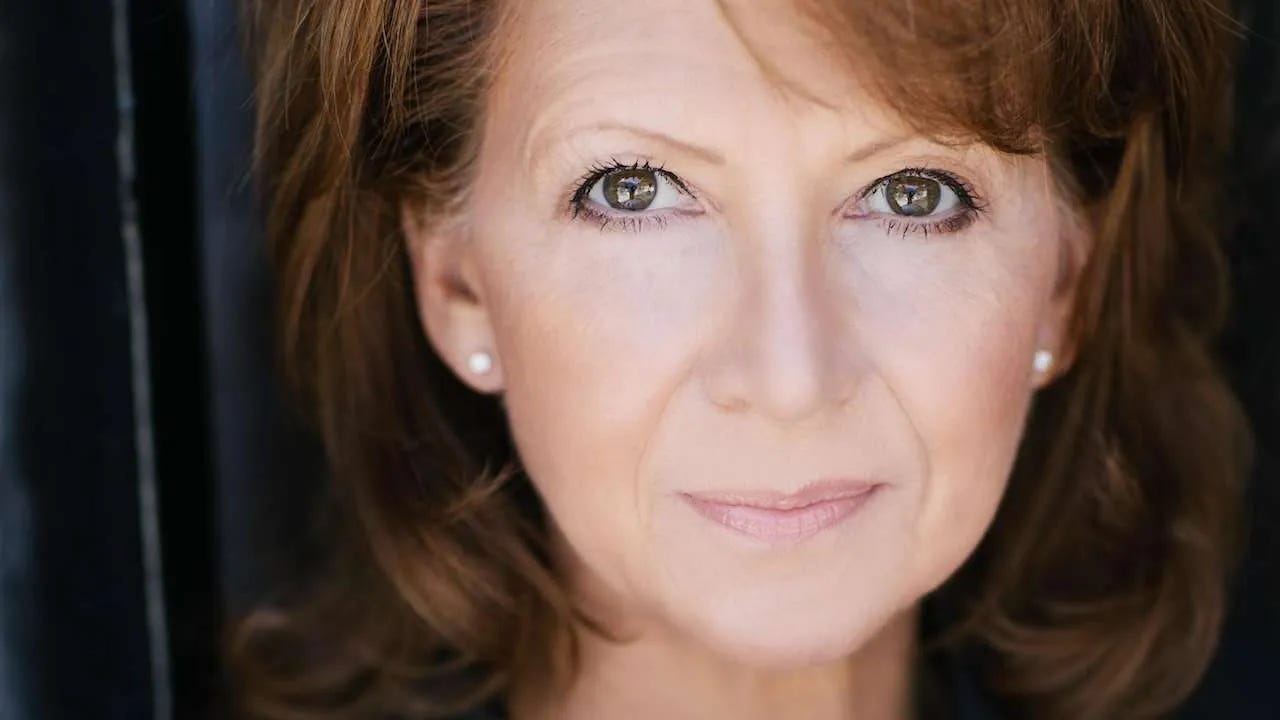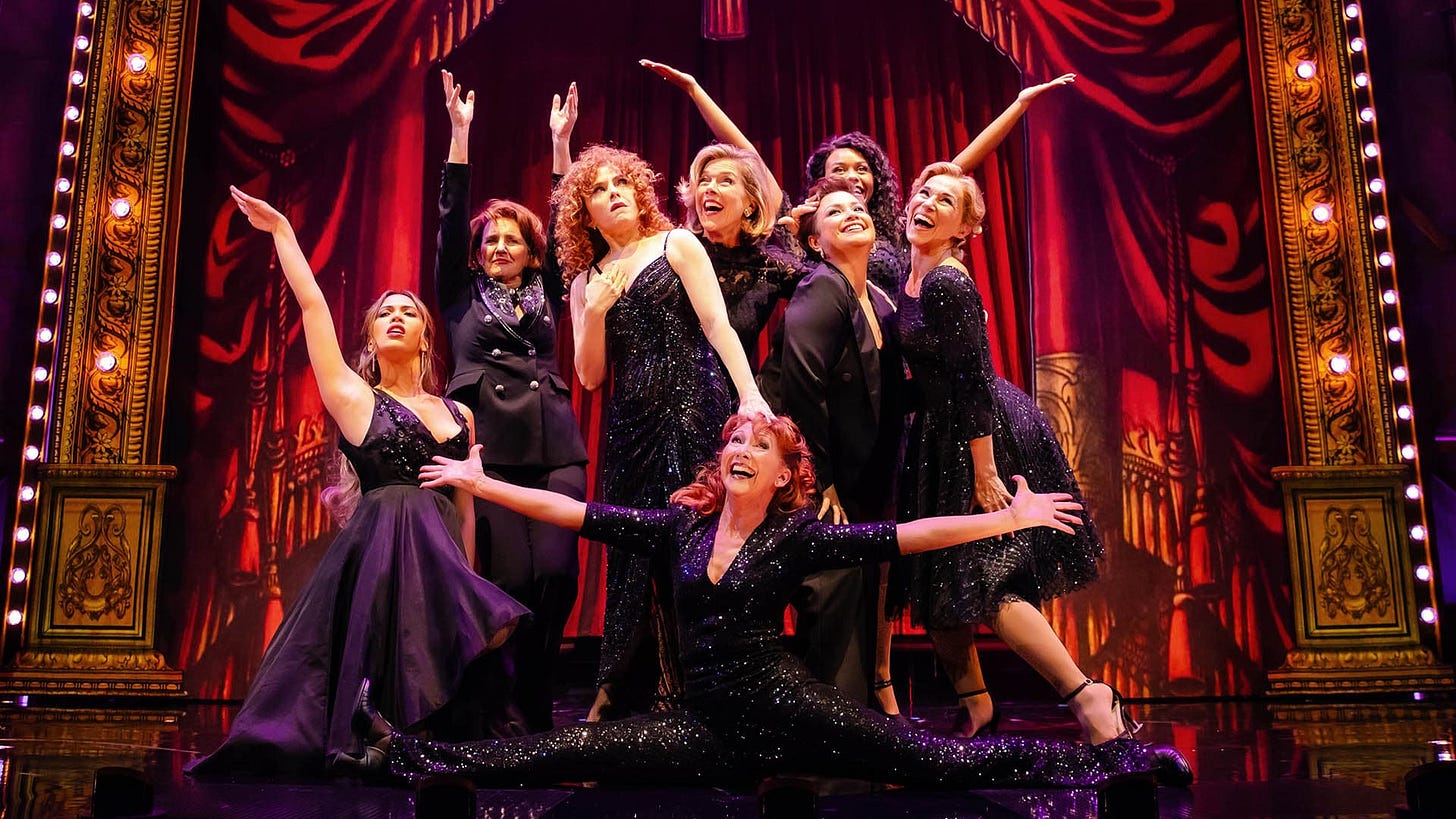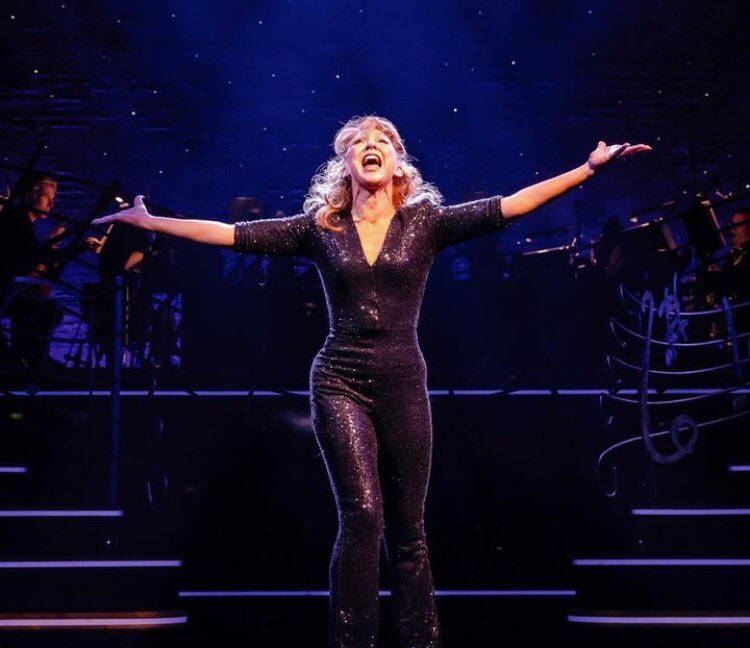A Conversation with Bonnie Langford
We speak to Bonnie Langford, star of stage and screen, about her roles in Old Friends, Gypsy, and much more besides
Few people can claim they were singing Sondheim’s lyrics professionally at the age of nine—but Bonnie Langford can. She starred as Baby June in Gypsy alongside Angela Lansbury, in the West End and on Broadway. Since then, her career has been one of astonishing breadth, on both stage and screen. She was the original Rumpleteazer in Andrew Lloyd-Webber’s Cats, companion to the Sixth and Seventh Doctors in Doctor Who (a role she is now reprising as a guest star in the show’s upcoming series), Lena Marelli in the 1976 film of Bugsy Malone, and between 2015 and 2018 she featured in 351 episodes of the BBC’s Eastenders. Most recently, she appeared in Stephen Sondheim’s Old Friends, which completed its West End run in January. That’s where our conversation began.
Now that some time has passed since Old Friends, what are your stand-out reflections as you look back on that period of time?
The whole project, unsurprisingly but surprisingly, was very special because it was about friendship—and also fallibility and vulnerability and all those things that Stephen did so brilliantly. It was joyous, and authentic I think as well. That friendship was not showbizzy. Even if we had been friends before—and some of us have been for a long time—even then, a lot of us hadn’t worked together, because quite often we’d be playing that same role. It would be one or other of us, things like that. It was a case of working with people that you’ve known but you’ve never really worked with before. I think the underlying message and the underlying theme was of an authentic friendship, and that came across the footlights. We all had our own moments, but we shared in each other’s as well.
You’re right, that certainly came across—it was the most magical, collaborative thing to see. Is it particularly challenging to play all those different roles and wear all those different hats within one show?
As you know, the show was originally a one-night gala. People would come on and do one or two things, maybe one number and a group number, so it was a much bigger company. It was, “Ooh, who’s coming on now to sing that song?” And at first, I think we were all quite concerned how that would work as a run, as a season, and also with a slightly smaller group of people. Also, some of us are playing parts that we probably wouldn’t ever play. I don’t think I would really ever be asked to play Petra, the maid in A Little Night Music. It was a very collaborative effort. We knew what the piece was. We knew what the compilation of work was. And for some of us, we were playing roles that we hadn’t thought we would play, which was fun. There was a lot of fun in the rehearsal studio. Matt[hew Bourne] is such a wonderful, collaborative director. He puts something down and says, “Go with it,” and then he’ll turn around and say, “Okay, well, maybe we need to look at this another way.” There was so much laughter and joy. It was a very safe space. And respect. Mutual respect.
And I think that sometimes people think that Stephen’s work is so intense and deep, but it’s so witty too, and acerbic and insightful. And he does that thing where, just suddenly, that arrow goes straight to your heart with one line. It pulls the rug from under you. And we were all able to access that truthfully. If we wanted to cry to each other, we did. There was a lot of hugging. There was a lot of laughter.
When we came to play it in front of audiences, of course it was celebratory from the word go. But also, I was surprised how much people laughed from the very beginning as well. In numbers like “The Little Things You Do Together,” they weren’t just smiling knowingly. People were laughing out loud very early on. Sometimes an audience hasn’t quite relaxed into a show that early—but people took to this one immediately, and that was wonderful to know. There was a lot of material. There’s a lot to take in, both to perform but also to receive as an audience. And I think that’s why people came back so often as well, because there was always something else to see.
Exactly. “The Little Things,” as you say, comes early in Old Friends, and then there’s so much light and shade along the way. I’m thinking of “You Gotta Get a Gimmick” and what follows from there…
I know. It’s outrageous. Just completely, unapologetically theatrical. Cameron [Mackintosh, legendary theater producer, and producer of Old Friends] was concerned at first, because he’s going, “We’re not doing Follies, and we’re not doing Gypsy. We’re not doing the shows.” At one point, there was a link where I was going to come on and stand and watch the young ones sing “Waiting for the Girls Upstairs” before “I’m Still Here.” But it was a bit too complex to read. It was a bit too ghost-like, a bit too Follies-esque. But he wanted to show my link with Gypsy, because I did “Gimmick” in the gala but I didn’t do it in the show. So we were looking for a thread, but it didn’t need it. It just stood on its own. Sometimes, if you just present something, the audience will go with it.
And there were also points where it was just unapologetically outrageous as well. I mean, “A Weekend in the Country” was just hilarious. The hats and the cars and all this other stuff. And it was important that we entered into each show totally. “Okay, now we’re going to be in Sweeney. Boom. Here we are.” At one point, it was suggested that we just wear our basic dresses, that we would put hats on or something to suggest each show. You couldn’t really do that. I think we were all much busier than any of us anticipated, in the first half especially. We’re all just running off, quick changes everywhere, the whole thing. It was a full wallop, and it was gorgeous to do that.
And amidst all of that activity, there are moments of such stillness too—such poise and power. Your “I’m Still Here” brought the house down night after night. Is there a secret to squeezing every last emotional drop out of that particular number?
Well, I think with all of Sondheim there’s always something else to find. Even when you’ve done it a hundred million times, there’s always something that you can connect differently. That’s how you keep it fresh. That’s how you know it’s good work, that musically it’s so brilliant, and lyrically there’s always something else to find. You can mine forever, and you’ll still come up with these beautiful little nuggets. “I’m Still Here” was great to do, because it’s a song about survival. And although it was representative of me being around a long time and starting when I was young and all of those things, some of the lyrics we replaced with lyrics that Stephen wrote for Shirley MacLaine, from the movie Postcards from the Edge. They seemed applicable for me and that worked a treat. But also, I think the way the song is constructed, it has these different levels to it. You have the introduction, where you establish what the song is going to be. Then you tell a bit more story. And then there’s a moment within that song in particular when you turn around and you go, “Okay, I’ve done my schtick. I know you well enough to share a vulnerability. I know you well enough to reveal something that you didn’t know,” which is always very intoxicating. So you draw the audience in a bit more, then you pull back, and then you go, “Right.” But I think the thing about the song is anyone can look at it and identify with it. I’ve had some good times and some bum times, but I’m still here. What else do we do except put one foot in front of another? It’s a song about overcoming whatever obstacles you have in your life, which we all have. We all have obstacles in our lives that we get over, and we know we’re going to meet more obstacles again, but we’ve got that resilience to go, “Come on, we have to celebrate ourselves for just surviving.” And maybe because in Old Friends it wasn’t in context, it showed that up perhaps even more: that it is a song of hope but also a song of survival. And not being bitter. That song, if you’re not careful, it can be bitter. And it’s about going, “Okay. So what? I’m still here. I’m still carrying on. What other option is there?”
That’s beautifully put. Now, you were singing Sondheim’s words earlier in your life than most, in Gypsy with Angela Lansbury. I wonder, when you have such a huge experience like that as a child, if you look back on it and it’s almost hazy, like a dream—or are there specific memories that still stand out to this day? Do you remember the first time you met Sondheim himself?
When I was doing Gypsy in New York, I think he was having a row with Arthur [Laurents, book writer of Gypsy and West Side Story]. I had already been in Gypsy in London, and he had not come there, even when we recorded the album. Jule Styne [composer of Gypsy] had come there. So, it was very dramatic with them all. And I was nine. I didn’t say boo to a goose at that point. And I was in a very big company, as in very large characters—and very high stakes, so you just keep shtum really. I was that type of kid anyway.
But they all came to Boston. It was our out-of-town venue, and we’d been doing the show for about eight months by then. The audiences were absolutely going crazy and loving it, but Arthur stripped it all back. He took all the over-the-top performance out of it, and even Angela was saying, “But I know this works! You mustn’t do it.” But it was stripped right back—and they were right to do that, but everyone was feeling quite vulnerable and insecure. And I remember Stephen being there. I remember him changing the lyrics of “If Momma Was Married” about five times, the different cats and animals and things. And at that time, Zan Charisse [who played Louise] was going, “I don’t know what animals I’ve got in my life at all, let alone anything else!”
But I do remember Stephen being on Broadway, just before we opened. He came up to me and said, “Get my lyrics right, won’t you,” and then just laughed and smiled and was jolly. And I just went, “Yes, Mr. Sondheim!” And that was it, really. So I didn’t exactly have a relationship as such, but I did work with and for him. I knew Jule Style a bit better actually, because he was around in London. He got banned from the theater because he tried to go up to the trumpeter and play his trumpet for him, and they all left. Yeah, he was quite a character.
And then I met Stephen and Arthur years later in Joe Allen’s restaurant after a show one day, and I sat on the next table to them. We chatted and they were both delightful. It was really lovely, actually. I met Arthur a few times after that. But they’d made up by then, obviously, and they were having a lovely dinner next to me, and we just chatted about life.
Wow. So that was a chance encounter at Joe Allen then, was it?
Totally. I don’t know whether Stephen was doing Follies. He might have been, actually. And I think Arthur had come over to see Noele Gordon do Gypsy in Leicester. He wouldn’t let them bring that show to London—he didn’t give them permission.
Is there a Sondheim role that you’ve never touched, or maybe you came briefly into contact with during Old Friends, that you’d love to have a go at one day?
Well, I wouldn’t do a vanity project, because I think that’s a hiding to nothing! I wouldn’t put anything on for myself. But yeah, I love the idea of doing a little bit of Sweeney. Mrs. Lovett would be quite a nice one. And I had to learn some of that role for Old Friends, because I had to cover Lea [Salonga]. We all covered one another, you see. It was crazy. I covered Bernadette [Peters] and Lea in most things. But the way it was constructed, we hoped, was that should anyone like that go off, we would still do our own parts, but incorporate the other songs too, so it redistributed the show. Thankfully, hardly anybody was off, because that I think logistically would have been quite a nightmare. But I did learn the Mrs. Lovett sections, and she was fun. I rather liked her.
And to bring things full circle, I saw that in June you’ll be hosting the Sondheim Society Student Performer of the Year ceremony. It’s such a fantastic event that happens every year in London. Is there any more you’re able to say about it, for people who might not already be familiar?
It’s on a Sunday in early June in the Sondheim Theatre, and I think it sounds wonderful. It’s a very notable, highly respected event. Julia McKenzie’s there, I think. And of course Julia, in rehearsals for Old Friends, she would come up and tell us little things about stuff. And at times when we were in rehearsals, you thought, I just can’t take all of this in! But you store different bits of information. And she was very, very particular, as she should be, about the lyrics. Very particular about the lyrics. And of course, in “I’m Still Here,” there are so many ands, sos, buts, all those bits. Oh my god. They did my head in, because it’s so easy to just go, “And I’m here.” No, it’s but! Or so! Julia was amazingly particular on all that, and adored it, and it was great having her there. She would give us so many insights. And Sondheim’s whole thing as well was about longevity, paying it forward, getting people to be involved. Because there can be this sort of stigma attached sometimes to his work, which is, “Ooh, it’s too difficult. Ooh, it’s too complicated. Ooh, I can’t cope.” That’s not true at all. Yes, it’s complicated. But isn’t that exciting?



